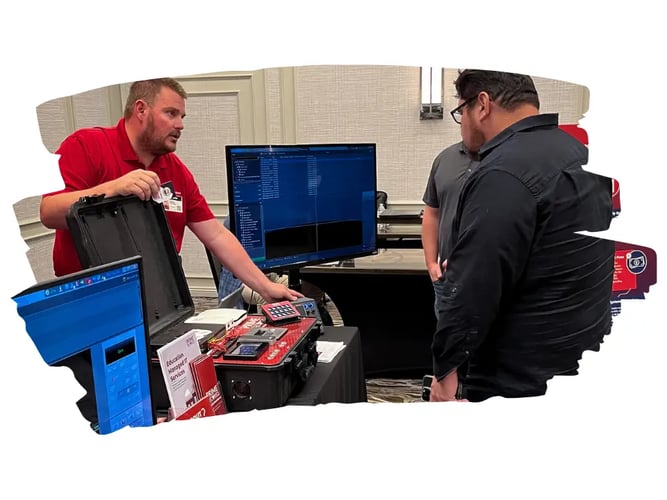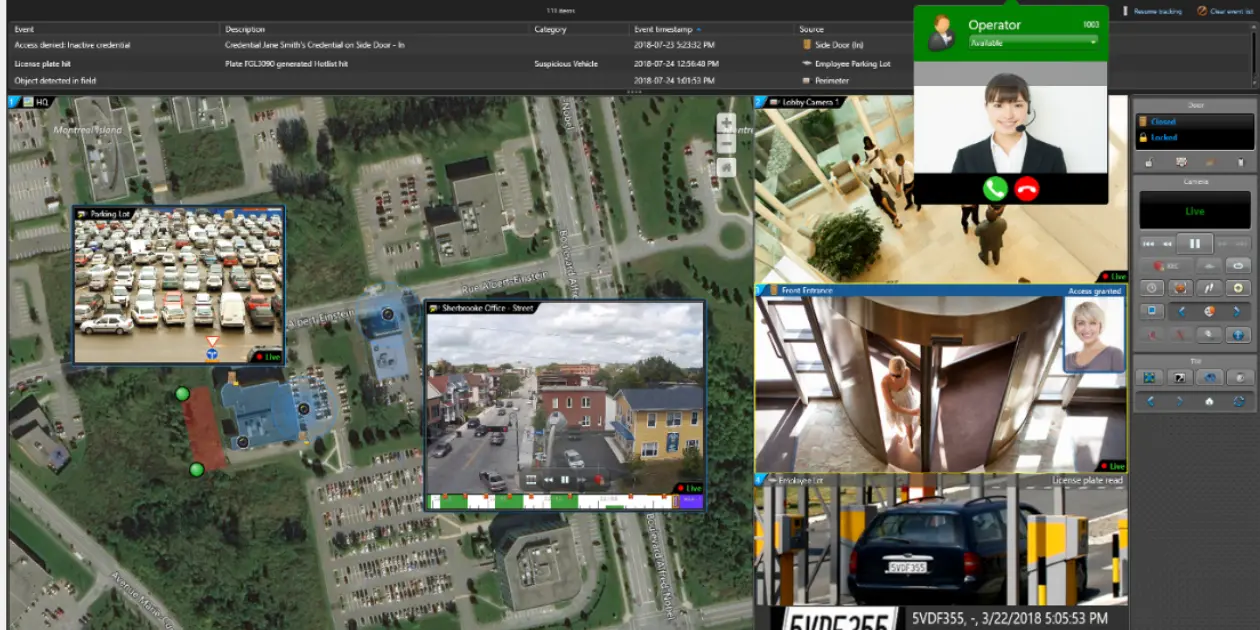Unified Vs. Integrated Security
Who makes security system decisions in your organization? In the past, it was likely one person—the IT manager. He or she would propose a system and the CEO or controller would approve the budget. Back then, options were limited and systems were relatively simple. IT departments were small, and no one except the technician knew much about how to make components work.
Today, a reliable security system contains multiple capabilities, from video cameras and facial recognition programs to alarms and access control. They are much more complex than they used to be, and decisions likely are made by a group (CIO, IT, CSO, etc.). In companies of any size, security solutions are also likely to be implemented and maintained by a group (loss control, IT, human resources, finance, maintenance).
Overhauling or upgrading a security system with multiple parts involving multiple personnel can become complicated, time-consuming and costly. The solution? Many companies choose to move to a unified system, rather than integrating diverse pieces that may cause unforeseen or unnecessary problems.
Connected and Integrated Security Systems are Vulnerable
An integrated security system is defined as separate hardware and software components from varying sources connected via a third-party plug-in. If the system only allows you to view what’s going on between different components, it is considered a connected system. It is only truly an integrated system if you have the capability of using the third-party plug-in to affect change in system components.
Although it’s tempting to purchase separate components from different brands to get narrowly defined, best-in-class technical capabilities for separate functions, the problems of integration tend to outweigh the benefits.
Difficulties within connected or integrated systems often arise when one component of the system must be updated but other components are not ready for the updated technology. Microsoft might make a system upgrade to Windows, for example, but QuickBooks may not have gotten around to upgrading for compatibility. This might be discovered when a company security director runs into something that isn’t working anymore, or frontline technicians may complain they are constantly putting out fires.
The larger a company is, the more complex integrated security systems will be and the more problems staff will see day-to-day. From updating system components to adding new technical capabilities as they are invented, an integrated system causes headaches because every piece of hardware and software has a different premise, operating method and documentation type.
 Example of Genetec security platform setup at a trade show
Example of Genetec security platform setup at a trade show
Why Your Company Should Not Settle for an Integrated Security System
1. Excessive steps are costly.
It is difficult to set up, maintain and manage an integrated system because many pieces must communicate with each other – and lots of components for technicians to manage. Learning multiple systems requires higher labor costs, can lead to mistakes, and could jeopardize ROI.
2. Complicated maintenance hinders employee recruitment and retention.
Feature-rich components and multiple connections require continuous, complicated investigations to ensure daily integrity. This can make it frustrating and time-consuming to accomplish system tasks that should be simple. Employees may decline to come on board if the problem is known. Exhausted, overworked employees may leave the company for greener pastures.
3. Misaligned updates are labor-intensive and cause security exposures.
Different components come out with updates at different times. Even when a third-party plug-in connecting components is updated, compatibility must be checked and technicians must maintain visibility with different vulnerabilities for each product and each update. This is not only a labor cost but also creates an exposure problem. A Windows patch, for example, could break an entire system because it affects different servers in different ways.
4. Technicians are taken away from systems to manage vendors.
When issues arise, technicians may find they are dealing with multiple vendors and integrators to manage different segments of the system. Not only is vendor management time-consuming, but it can lead to finger-pointing, with different vendors suggesting it is someone else’s fault that the system broke. More management is required.
5. Anticipation of problems causes inaction.
When one component of an integrated system requires updating, some technical users will neglect updating other parts of the system because they fear it could lead to a break in the third-party connection. However, not having the most up-to-date software can lead to fundamental security concerns. It also can reduce the company’s ability to compare favorably with competitors.
Our Blog
Subscribe to the Prime Secured blog to receive the latest updates.
What Makes a Unified Security System Better
A unified security system contains all the functionality of an integrated system, with connections between components designed into the system intentionally. All components run on the same operating system within the same server architecture, so no time or effort is lost trying to make up for inconsistencies.
Advantages of purchasing and maintaining a unified security system include:
6. Single Point of Contact Saves Time and Money
System maintenance personnel only have to deal with one vendor and a single point of contact. This saves time and money compared to the excessive resources that may be expended to keep an integrated system running. Technicians can spend time working with the system, instead of wasting time managing multiple vendors. All service payments are made to one contact, as well.
7. Updates Are Smoother, Quicker and More Reliable
When an update is needed in one component of a unified system, it can be made without duplicating work or breaking connections. Update capabilities are embedded in code. Personnel can focus on updating quickly and moving on, rather than wasting time checking validation of components with multiple companies. Consolidated reporting is efficient and effective.
8. Personnel Feels Confident and Trusted
Because updates in a unified security system can be handled without excessive verifications, a company’s in-house technical employees are less likely to neglect important tasks or become exhausted from working too much. The system runs more smoothly without much troubleshooting that might lead supervisors to believe technicians are not doing their job right.
9. System Add-Ons Are Easier and Less Complicated
A unified security system is foundational. All applications are accessed through the same platform, with a minimum of core pieces that allow the same functionalities of an integrated system. If additional third-party applications are desired, such as facial recognition or gunshot detection, those applications can be easily integrated into the system’s foundation.
10. Exposure to Risk Is Reduced
Because a unified security system has fewer mismatched components and lesser potential for inadvertent misalignment of programs, it offers less exposure to potential loss of integrity. For the same reason, a closed system provides fewer open doors for those who may intend harm to your company. In fact, unified systems offer built-in detection features to fit all components.
Genetec Security Center- Unified Solution
In this complex world of hardware and software, whether one person in your company is responsible for systems or a group, security systems should not be complicated. They should be quick to deploy, easy to manage, and reliably secure. Prime Secured has worked with a number of different unified systems. We believe the best on the market is Genetec's.
Ask us how we can use Genetec's system to help you natively support security features in one platform, quickly and smoothly upgrade all components, and confidently achieve a high level of security without costly overwork.
Leave your thoughts!
Other Topics You Might be Interested In:

